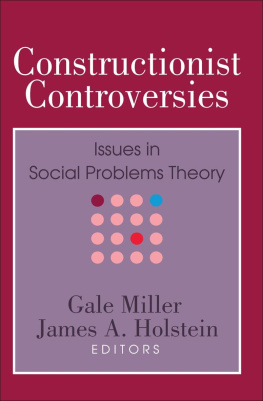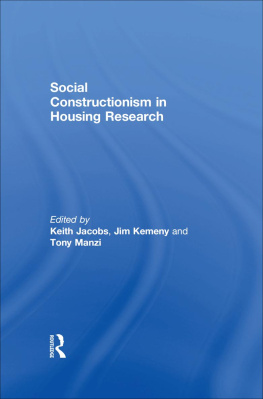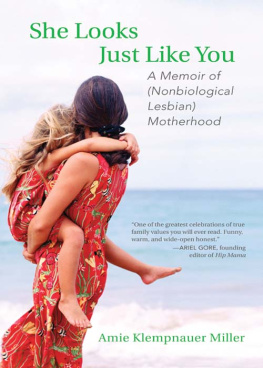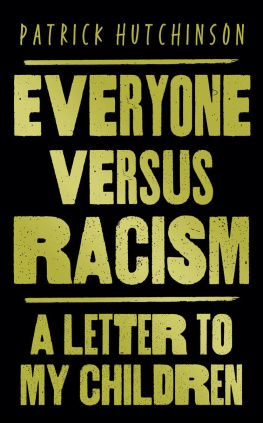If You Seduce a Straight Person, Can You Make Them Gay?
Issues in Biological Essentialism versus Social Constructionism in Gay and Lesbian Identities
If You Seduce a Straight Person, Can You Make Them Gay?
Issues in Biological Essentialism versus Social Constructionism in Gay and Lesbian Identities
John P. De Cecco, PhD
John P. Elia, PhD (cand.)
Editors
The title includes a colloquial form widely-used in contemporary English. Specifically, we hope that our readers will forgive the use of the plural them following the singular person.
If You Seduce a Straight Person, Can You Make Them Gay? Issues in Biological Essentialism versus Social Constructionism in Gay and Lesbian Identities has also been published as Journal of Homosexuality, Volume 24, Numbers 3/4 1993.
1993 by The Haworth Press, Inc. All rights reserved. No part of this work may be reproduced or utilized in any form or by any means, electronic or mechanical, including photocopying, microfilm and recording, or by any information storage and retrieval system, without permission in writing from the publisher.
First published by
The Haworth Press, Inc., 10 Alice Street, Binghamton, NY 13904-1580 USA
This edition published 2013 by Routledge
Routledge
Taylor & Francis Group
711 Third Avenue
New York, NY 10017
Routledge
Taylor & Francis Group
2 Park Square, Milton Park
Abingdon, Oxon OX14 4RN
Routledge is an imprint of the Taylor & Francis Group, an informa business
Library of Congress Cataloging-in-Publication Data
If you seduce a straight person, can you make them gay? Issues in biological essentialism versus social constructionism in gay and lesbian identities / John P. De Cecco, John P. Elia, editors.
p. cm.
Includes bibliographical references and index.
ISBN 1-56024-386-4 (alk. paper).ISBN 1-56023-034-7 (pbk. : alk. paper)
1. Homosexuality. 2. GaysIdentity. I. De Cecco, John P. II. Elia, John P.
HQ76.25.138 1993
306.76'6dc20
92-39461
CIP
ABOUT THE EDITORS
John P. De Cecco, PhD, has been editor of the Journal of Homosexuality since 1977. He is presently the director of the interdisciplinary program in human sexuality studies at San Francisco State University, where he has been Professor of Psychology since 1960. He is now editor-in-chief of The Haworth Press Gay and Lesbian Study booklist.
John P. Elia received two Bachelor of Arts degrees in history and physical education and a Master of Arts degree in history from San Francisco State University, where he has been teaching health education, human sexuality, and psychology courses for the past five years. He is currently a doctoral student in education at the University of California, Davis. He is the author of Human Sexuality: Instructors Manual (second edition, Mosby-Yearbook Publishers, 1992). In addition, he has published articles on the history of sexuality. Also, he serves as assistant editor and book review editor for the Journal of Homosexuality as well as being a research associate in the Center for Research and Education in Sexuality (CERES) at San Francisco State University.
If You Seduce a Straight Person, Can You Make Them Gay?
Issues in Biological Essentialism versus Social Constructionism in Gay and Lesbian Identities
If You Seduce a Straight Person, Can You Make Them Gay?
Issues in Biological Essentialism versus Social Constructionism in Gay and Lesbian Identities
CONTENTS
John P. De Cecco, PhD John P. Elia, MA, PhD (cand.)
Sarah Franklin, PhD
Jay P. Paul, PhD
Mildred Dickemann, PhD
Jrg Hutter, Dr. rer. pol.
Peter Dankmeijer
Gerd Bntzly, MA
Hans van der Geest, ThD
Herman Meijer
Eric de Kuyper, PhD
Gloria Wekker, PhD
Arslan Yuzgun, PhD
Barry D. Adam, PhD
Daniel Bao, MA
John Lauritsen, AB
Joel I. Brodsky, PhD
Preface
In their original form, the papers published in this volume, with two exceptions, were among those presented in the social studies section of the last international conference on lesbian, gay, and bisexual studies, Homosexuality, Which Homosexuality? held in 1987 at the Free University in Amsterdam. Most of the papers have been updated and revised. The publication of some of the historical papers presented at the conference is planned for future issues of Journal of Homosexuality.
The conference was organized by a group of Dutch scholars who, in collaboration with English-language researchers, were interested in creating a broad interdisciplinary forum for research and theoretical speculation on homosexuality. The conference was specifically designed to introduce social constructionist views of sexuality and gender as a challenge to the essentialist approaches that had dominated the research of the preceding decade. These two perspectives are described later.
The HWH conference, as it came to be known, followed on the heels of another, Homosexuality Beyond Disease, hastily assembled by former members of the Gay and Lesbian Studies program at Utrecht University, which was then known as the home of Dutch essentialism. The almost simultaneous occurrence of the two conferences was Janus-like, one face looking back to the so-called essentialist research of the seventies, with its heated quest for the hidden history of gay men and lesbians, and the other looking forward to what has become the scholarship of the late eighties and nineties, now collectively characterized as social constructionist.
Among the many intellectual progenitors of the HWH conference were scholars who had examined the meanings of sexuality and gender to show how they varied with their historical and cultural contexts. They included feminists such as Carole Vance and Martha Vicinus; the sociologists such as John Gagnon, Mary McIntosh, Kenneth Plummer, and Jeffrey Weeks; the historians of early modern Europe, such as Alan Bray, Randolph Trumbach, and Theo van der Meer; and the ranking French intellectual of the era, Michel Foucault. What had begun in the seventies and early eighties as a modest effort to chronicle and universalize homosexuality as a unitary biological phenomenon that transcended its historical and cultural contexts, unwittingly led such scholars to challenge the view of sexuality and gender generally held by the public, which we are calling biological essentialism.
There are many persons we wish to thank for their contributions to this collection. First of all there are the authors who warmly responded to our invitation to include their papers and patiently revised their manuscripts. We are indebted to our faithful research assistants, Linda Heidenreich and Alan Wolf who, over a period of several months, diligently edited the papers, which was a demanding task for both them and the authors since English was not the native tongue of several contributors. Linda deserves our special thanks for her expert word-processing of the edited papers.
We are grateful to the many organizers of the HWH conference, particularly Anna van Kooten-Niekerk and Theo van der Meer, who encouraged us to undertake this project, provided us the means of contacting contributors, and, in innumerable ways, made the senior editors sabbatical year in Amsterdam a very special intellectual and pleasurable sojourn.







